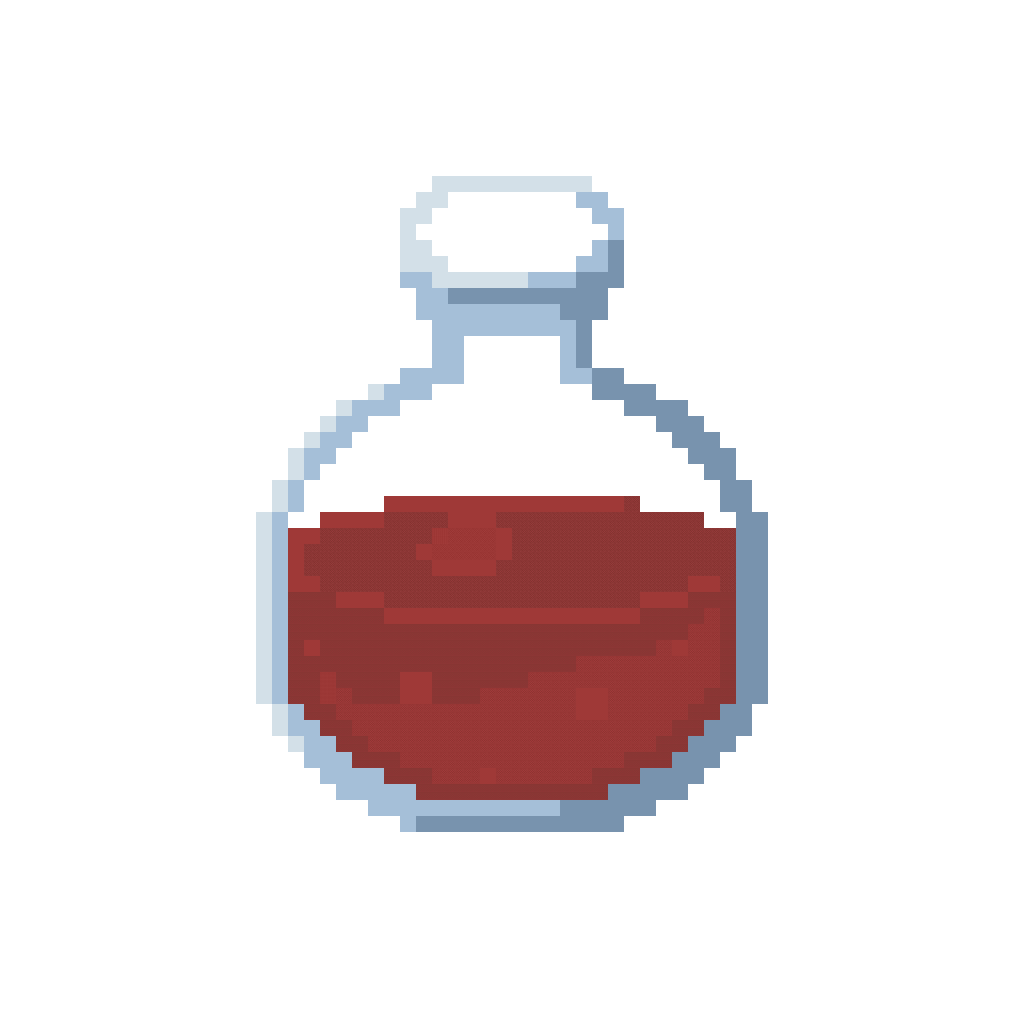

Overview
Potionmania was developed for my second systemic design module, where my team must design and create a systemic game in Unity.
For this project I was the design lead and helped flesh out the idea and implemented the balancing of the various potion receipes.
Genre: Strategy Simulator
Game Engine: Unity
Platform: Windows
Project Duration: 12 Weeks
About the Game
Potionmania takes place in a medieval fantasy inspired country. The country is in civil unrest, with two factions; Audrey and Betram declaring war on each other.
The player unwillingly inherits his aunt's potion shop within the city. As a main supplier to both Audrey and Betram, players must make use of their deduction skills and determine what potion the customer requires, while trying to prevent the war from devouring the country.

Potionmania takes place in a medieval fantasy inspired country. The country is in civil unrest, with two factions; Audrey and Betram declaring war on each other.
The player unwillingly inherits his aunt's potion shop within the city. As a main supplier to both Audrey and Betram, players must make use of their
deduction skills and determine what potion the customer requires, while trying to prevent the war from devouring the country.
deduction skills and determine what potion the customer requires, while trying to prevent the war from devouring the country.
As the hidden potion supplier to both side of the war, the players' action have a definite impact on the war. Be it supplying a summoning potion that allows the Audreys to poison the Betram's water supply or providing a glamour

potion for the Betrams to infiltrate Audrey's bases.
Managing both parties satisfaction and aggression is key for survival in this cruel world. Flavoring a faction more, may allow the other faction to learn your treachery and may result in you untimly demise.
Players have over 30 different potions to brew, each potion has it own unique look and effects that it provides to its consumer. Some potions may summon a fearsome dragon while some allows others to easily fall prey to seduction.
The process

Potionmania went through many iterations during the ideation phase, the political elements were introduced a week after the team settled on developing a potion crafting game.
The faction management elements were later added to differentiate my team's project and provide an additional layer of depth and design to our systemic game.
Designing the Potions & Quest
At the start I first came up with the multiple categories that each potion would belong too. Having a fixed number of potion types made it more efficient and easier for me to design potions and what each one would do. I came up with five categories which all potions would belong to.



To brew a potion, players would have to mix one main ingredient and two sub-ingredients. The main ingredient determines the category of the potion while the sub-ingredients would affect the potion's usage.
With the five categories of potions and six potential usage, I was able to design thirty different potions. Each with their unique abilities and look. Using an excel sheet, I was able to balance out how
how many potion each category should have, and madesure that none of the potions had the same receipe.
Next was to design the quests and determine the type of potion the customer would accept. It was decided that the customer would pay the full price when the player brewed the exact potion that customer was looking for; the customer would pay half the price state if the player brewed a potion from the same type and if it was a potion from another type the customer would just leave without paying.

I simply took inspiration from the usage of each potion to design the quest and its content for each request.
Designing the Warfare
The next task was to design the mechanics that players have to manage. I saw the potion requests from the two factions as favours, if the player successfully completed a request it would increase that faction's satisfaction points. However, if the players failed to brew a satisfactory potion, it would decrease the faction's satisfaction and increase their stress.
Increasing a faction stress would increase the chances of a random events occuring. Events would drastically affect a faction's stress meter, either prompting an act of aggression from one faction or dissipating the stress.
The addition of the stress meter allowed players to determine if they should brew an incorrect potion on purpose. Giving the players flexibility and a chance to recover if they brew the wrong potion by accident.
What I've Learnt

This was my first time designing a systemic simulation game. It was easily, designing the various potions and quests given to the play by the NPCs. However, balancing the receipes; quests and stat adjustments was tough. Learning how to use excel sheet and making meaningful edits to the in-game values was a new skill that I learnt in this project.